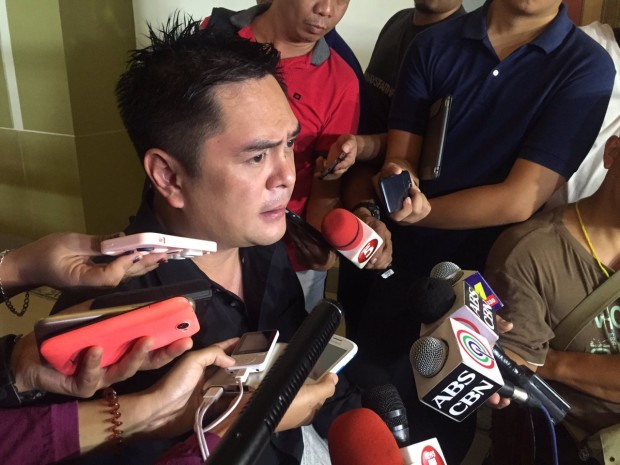‘Despite media tiff, Duterte to push FOI’

Incoming PCOO head Martin Andanar holds press briefing in Davao. KRISTINE ANGELI SABILLO/INQUIRER.net
DAVAO CITY—While his relationship with the media has become testy even before formally assuming office, President-elect Rodrigo Duterte will give open access to journalists and stay true to his pledge to enact a Freedom of Information (FOI) act.
Television anchor Martin Andanar, incoming Presidential Communications Operations Office chief, made the announcement on Saturday in the wake of the Duterte camp’s statement on Friday that Duterte would no longer hold press conferences “so that there will be no more errors.”
“All of the media agencies—private, local, international—of course, they will get free access. There will be no change,” Andanar told reporters on Saturday morning.
“As a matter of fact, the President-elect said he would execute an executive order for a Freedom of Information [policy]. So we will become more transparent,” said the long-time broadcaster.
Duterte’s executive assistant, Christopher Go, had told reporters Friday night that the incoming President would henceforth course all his announcements and press statements through state broadcaster PTV-4.
Article continues after this advertisementThe announcement came after Duterte said the media could go ahead and boycott him—a call that the international journalists’ group Reporters Without Borders had made in response to the mayor’s statements appearing to justify the killing of corrupt journalists.
Article continues after this advertisementHe later clarified he could not stop journalists from covering him as “this is a free country.”
Asked if the order to stop the press conferences might be followed by a gag on the incoming members of the Cabinet, as the mayor had supposedly threatened, Andanar replied: “There is no such directive.”
Saying he was still talking as “one of you,” Andanar, who will officially resign from network TV5 on Monday to assume the government post, added he hoped to build a positive relationship with the media.
The incoming official held the briefing in a meeting with Davao City reporters, whom he had sought out to better understand the local “culture.”
A Davao City reporter asked Andanar: “How are you going to let the Manila media understand who Duterte is? Most of the Davao media know when he is joking or not.”
“The Davao media will have to help with that,” said Andanar, a Cebuano-speaking native of Cagayan de Oro City.
Meanwhile, Communications professor Edson Tandoc Jr. pointed out in a separate interview that Duterte had announced two days after his election that he would implement an FOI policy by issuing an executive order.
Congress failed to pass the FOI bill, a campaign promise made by President Aquino in 2010.
“It is important to examine this in relation to the incoming administration’s earlier promise of prioritizing freedom of information and eliminating corruption,” said Tandoc, who teaches at the Wee Kim Wee School of Communication and Information at Nanyang Technological University in Singapore.
Tandoc said his research showed that “countries with strong freedom of information laws also enjoy very low levels of corruption.”
“So clearly there is a link here. Of course, it is Mr. Duterte’s right to choose whether or not to grant interviews, but restricting media access to him and coursing all statements through the state-controlled network do not fit into the framework of granting citizens, represented by journalists, free access to information,” Tandoc, a former Inquirer reporter, said./rga